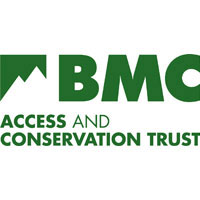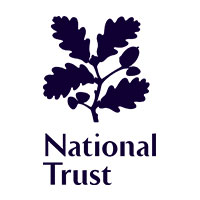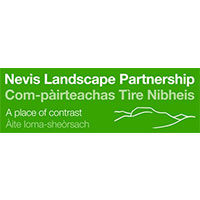We asked Kate Worthington from local guiding company RAW Adventures to tell us how they run Three Peaks Challenge events sustainably:
RAW Adventures tries to encourage groups to go for the three day challenge – it’s as physically challenging but participants get to enjoy the stunning areas they’re visiting as well. But for those that can’t be convinced and are keen to do the 24 hr Challenge, RAW Adventures will break the hours up into driving and walking time:
Driving Time – allocate an average 10 hours (6 hours between Ben Nevis and Scafell Pike and 4 hours between Scafell Pike and Snowdon)
Ben Nevis Walking Time – 5hr 30min
Scafell Pike Walking Time – 4hr 15min (from Wasdale Head)
Snowdon Walking Time – 4hr 15min (from Pen y Pass)
Total Mountain Walking Time = 14 hours
TOTAL event time = 24 hours
Allocating a drive time of 10 x hours takes the pressure off the driving, and thus you won’t need to break any speed limits, miss any toilet stops or worry if you get stuck in traffic anywhere. The responsibility then rests on the walking team to achieve the ‘mountain walking’ times…and these are still tough times to beat!
A favoured itinerary recommended by RAW Adventures:
Day 1
15:00 Start Ben Nevis
21:00 Hot meal in Fort William (options available in Fort William/Glen Nevis)
Depart Fort William for overnight drive and sleep
Day 2
05:00 Start Scafell Pike
09:30 Breakfast at Wasdale Head Inn
Drive to Snowdon
14:00 Start Snowdon
18:30 Finish Snowdon and complete challenge
Stay overnight in Snowdonia for dinner and to celebrate
Day 3
Journeys home – well rested after a good night’s sleep
We asked Kate to talk us through the nitty-gritty of planning a Challenge:
“We take our last two independent events as an example, which we provided for a group of 12 friends and a group of 40 corporate fundraisers respectively. The process started by asking lots of questions and providing information, even before an ideal itinerary was agreed:
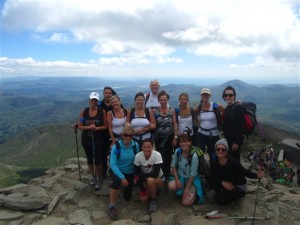
- What are the team’s objectives and experience?
- Advice on best times of year/days to complete the event
- Discuss different ways of timing the event for success and safety
- How many days available do they have to complete it? Can it be longer?
- How can we best help them prepare and understand the challenge involved?
- How do we reduce our impact locally and environmentally?
- What can we positively do for local businesses and suppliers?
- How do we minimise risk to participants?
- How shall they travel to/from the start/end point?
- How do we help them obtain kit and equipment?
- Do we need any extra staffing to address any issues
The nature of the event inevitably took us into popular areas. We kept to engineered paths where available and actively discouraged walking next to them (to avoid ‘path creep’), with staff leading by example while walking. We educated teams as to how a popular mountain is managed and maintained, enabling them to enjoy its environment, wildlife, scenery and history more. Another main concern is encouraging the use of reusable containers for water and food and we will strongly adopt ‘Leave No Trace’ practices on the mountain. Our teams were briefed on the effect of littering and food decomposition, noise, leaving natural features as they are, not blocking paths, where to toilet and what to do with tissues etc. This included advice on appropriate parking and accommodation on either side of the event itinerary. In order to maintain best practice in our organisation and delivery of a 3 Peaks Challenge, we also made sure we followed these set of principles – and we always do, regardless of the total size of our teams:
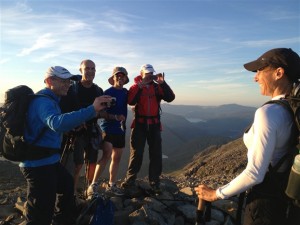
- Clear pre-event information so everyone is aware and informed
- Advice on kit, equipment, food and nutrition
- Assistance with training walks if requested
- Liaison with authorities and landowners for the different peaks as needed
- Booking parking and payment of fees if necessary
- Using professional transport services to maintain safety and efficiency en route
- Using experienced, qualified, knowledgeable and confident Mountain Leaders
- Working with groups of 8-10 walkers, and splitting larger groups accordingly
- Maintaining good communications between staff on/off the hill with appropriate radio equipment
- Giving clear event and safety briefings before each mountain so expectations, pace and timings are managed well
- Employing clear and fair cut off timings on mountains to minimise exhaustion and safeguard event/driver timings
- Using local suppliers for food, drink, accommodation, fuel, parking, kit, event supplies
- Recycling waste and appropriate disposal where necessary
- We do not advocate the use of ‘marshals’ for large scale events – all our teams are accompanied by a Leader
- We donate £3 per participant split between the following three charities: Snowdonia Society, Fix the Fells and the Ben Nevis Partnership
- We co-ordinate and promote efforts of the ‘Real 3 Peaks Challenge’ on Snowdon (an event organised by Mountain Leaders and Instructors who work in the industry to help keep the mountains clean and raise environmental awareness)
- Help promote information on best practice and offer advice to other providers and users accordingly
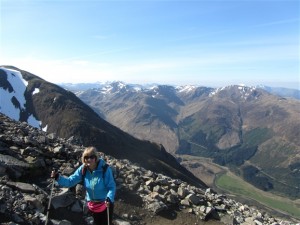
The 3 Peaks Challenge is certainly a popular and tough event – and not always pretty! It does attract a large number of people to the UK mountains each year – and it may be their first experience of walking in our beautiful hills. The best outcome for anyone thinking about the organisation/provision of the challenge is to make sure it is executed in the best way possible to achieve its aims, to promote best practice, to remain safe and to give each participant a most rewarding experience…that will engage them further in the outdoors in a positive way”.
For any further information or advice, please contact RAW Adventures via their website.





